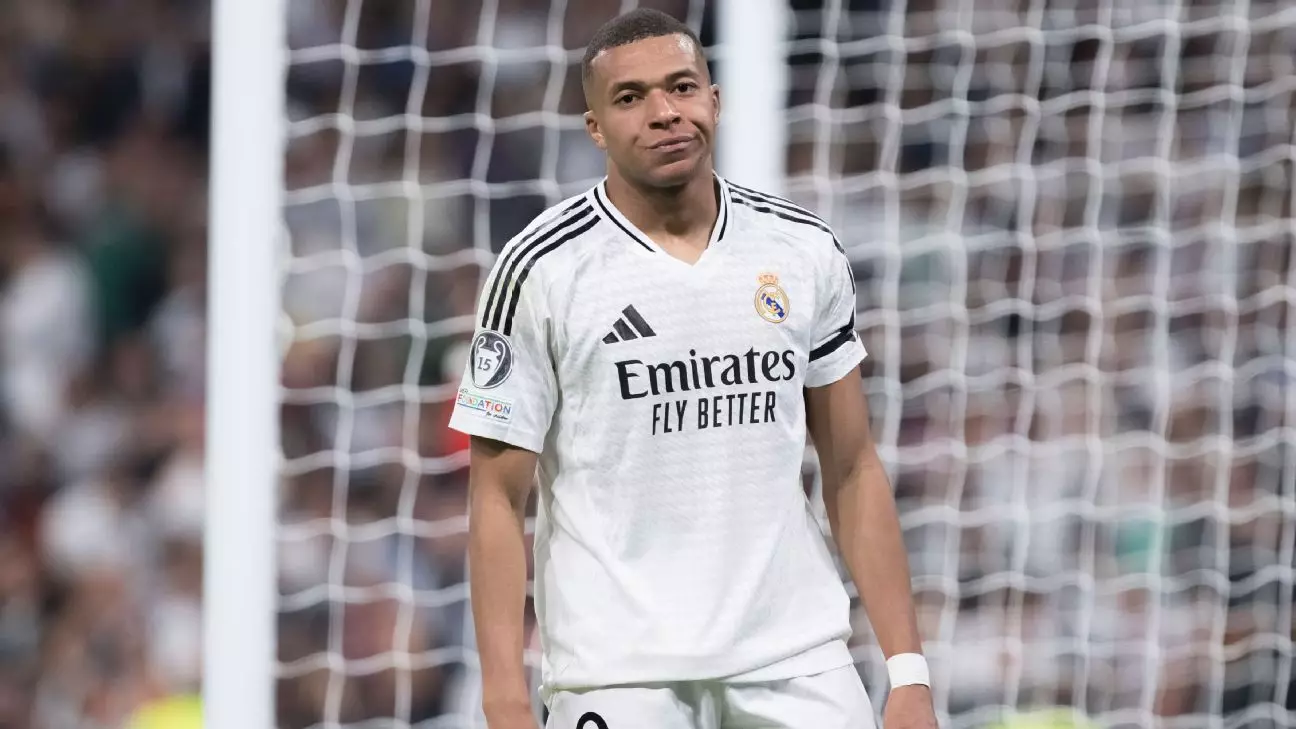In the world of football, it is often easy to place the blame for a team’s underperformance squarely on the shoulders of an individual player. This has been notably evidenced in Real Madrid’s current plight, with Kylian Mbappé facing significant scrutiny after a lackluster string of games. However, Carlo Ancelotti, the club’s manager, has firmly rejected the notion that Mbappé’s difficulties are the root cause of the team’s struggles. Instead, Ancelotti emphasizes a collective issue that permeates the squad. His assertion highlights a critical understanding of sports dynamics, where the interplay of team synergy is paramount, and pinpointing the problem to a single player undermines the collective responsibility that is essential for any team’s success.
Analyzing Real Madrid’s recent outings, it becomes evident that the team’s woes extend beyond just one player. Mbappé, despite experiencing fluctuations in form—including netting merely two goals in his last nine appearances—has also contributed significantly with assists, indicating that his overall involvement in the game remains meaningful. The losses against formidable adversaries like Lille, Barcelona, AC Milan, and Liverpool cannot solely be attributed to his performance. They reveal a deeper malaise within the squad: tactical misalignments, a lack of cohesiveness, and perhaps even an emotional toll stemming from consistent pressure and expectations.
Psychological and Tactical Implications
Ancelotti’s assertion that the situation is a “collective problem” holds weight not just in its emotional appeal but also from a tactical standpoint. Players often overlook the psychological impacts of their teammates’ performances on their own game. The missed penalty by Mbappé during the notable defeat at Anfield further exacerbates this scenario, as it induces self-doubt not just in him but reciprocally among his teammates, thereby contributing to a larger crisis of confidence.
The return of Rodrygo presents a flicker of hope, but the ongoing injury crisis suggests that this setback is systemic. The absence of key players like Dani Carvajal and Éder Militão has disrupted the established defensive structure, revealing vulnerabilities that opposing teams are eager to exploit. Ancelotti himself confessed to grappling with form and results, drawing a parallel between his journey and that of Mbappé.
Looking toward the future, Ancelotti’s stance on not rushing into the January transfer window for reinforcements demonstrates a philosophical approach to crisis management. His belief in unity and personal accountability indicates that Real Madrid must first focus internally to rectify their course. The painstaking process of re-evaluating strategies, fostering player adaptability, and restoring confidence in one another will be crucial.
The situation at Real Madrid serves as an insightful reminder that sports performance is rarely the result of a singular entity’s actions. Rather, it reflects a complex tapestry woven from each member’s input and the dynamics of teamwork. If Ancelotti can successfully steer his team towards embracing this collective ethos, there remains a tangible opportunity for Real Madrid to emerge stronger from this trial. The challenge lies in shifting perceptions and reinforcing the understanding that growth is inherently a shared endeavor.

